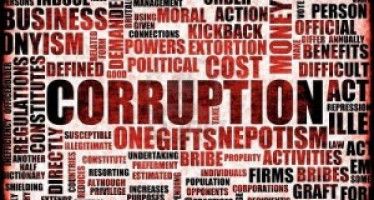Legislature bringing defeated Prop. 31 back to life
By Wayne Lusvardi
The voters spoke. Now the California Legislature is working to defy them.
Proposition 31 was the only ballot initiative involving government reform that was defeated at the polls on Nov. 6, 2012. Now it’s coming back from the dead, zombie-like, in the state Legislature in a package of three bills: SB 1, SB 11 and SB 33.
Proposition 31 was presented as a good-government reform. But on CalWatchdog.com last August, I was the first to report that it really was a proposal to get around local city councils and county boards of supervisors by creating unelected regional councils. The councils then would decide where to spend state revenues that are shared with local governments: school funds, state road funds and vehicle license fees.
The Legislature would have taken over some of the functions of local governments with unelected, quasi-government councils.
When the facts came out, Proposition 31 was opposed by the political Left because it could have authorized the Legislature to take over the California Coastal Commission, the Lake Tahoe Regional Planning Agency and local unified school districts. It was opposed by the political Right because local city councils in conservative cities would no longer have had any say on where state revenue sharing funds were spent in their cities.
Three bills
SB 1 is by Senate President Pro Tem Darrell Steinberg, D-Sacramento. It proposes an unelected regional government called “Sustainable Communities Investment Authorities.” There would be no way that taxpayers could elect, recall or replace any of the members of these authorities. In essence, they would become an unaccountable and duplicative layer of sovereign government that would do the bidding of the Legislature. SB 1 is pending a public hearing in the State Senate Governance and Finance Committees.
SB 11 is by state Sen. Fran Pavley, D-Agoura Hills. It calls for a state emergency to promote hydrogen fuel vehicles, fueling stations and networks by a state-created commission funded with increased smog abatement fees, vehicle registration fees and tire disposal fees. Once again, this commission would be appointed by the Legislature and could usurp local control of where such stations would be located. The Senate Transportation and Housing Committee will be hearing this bill soon.
SB 33 is by state Sen. Lois Wolk, D-Davis and is the worst of all three. It would establish infrastructure-financing districts that could approve bonds without any voter approval. Redevelopment would be reincarnated at the local level, this time run by the Legislature. Home rule would be lost. The number one priority of SB 33 would be to further sustainable communities strategies to reduce greenhouse emissions. SB 33 will be heard by the State Senate Governance and Finance Committees.
Destroying local control
The goal of all these bills is to partly replace local government with regional government. Such unelected regional government councils would force wealthy suburbs to give up some of their state revenues to disadvantaged cities and school districts or face revenue reductions from the state.
Another function of these bills would be vote buying: Democratic state legislators would be able to buy votes in local Republican districts. The result might be what is called “fusion government,” where the Democratic Party exercises power in unelected districts without any legitimate consent of the governed.
The Roman Republic fell when a Triumvirate of three powerful leaders, Julius Caesar, Pompey and Marcus Crassus, grabbed power in a coup without any legal status. The California republic — representative government — might be weakened to the point of nonexistence by these three bills.
Thank the California Federation of Republican Women for alerting voters to this “sneaky” package of bills.
Related Articles
Attorney General’s Office: Bullet-train law not binding on Legislature
The bullet-train project doesn’t have a legal financing plan or adequate environmental rules, according to an Aug. 16 decision by
Part of bullet-train legal mystery may be answered
For close followers of the bullet-train saga, one of the most basic mysteries of recent years has been what happened
Government held to far lower standard than private sector
The gap between the standards seen in the private sector and the public sector have never seemed bigger. In the





